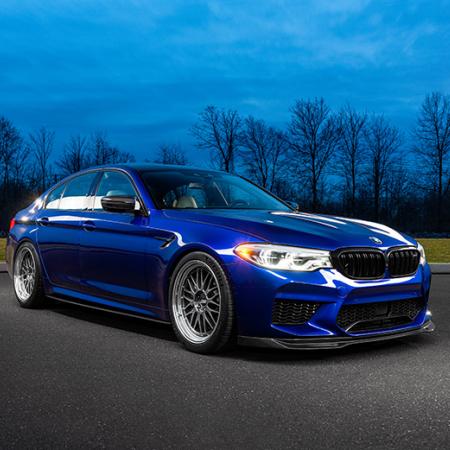Forget Mayweather and Pacquiao. The real battle this year is between BMW, Mercedes-Benz, and Lexus for the U.S. luxury car sales crown. Unlike the welterweights in last week’s boxing match, the two German and one Japanese luxury car builders are the true heavyweights in the premium automotive sector, and we won’t know who the winner will be until the end of the year.
Mercedes-Benz took the lead out of the gate in January, but by the end of the first quarter, BMW had built a slim 336-vehicle lead over Mercedes. The Stuttgarters fought back in April with a 13 percent surge in sales over April 2014, and now have sold 107,344 premium vehicles so far in 2015, giving them a 1900-vehicle lead over second-place BMW.
With a bump of 6.9 percent over a year ago, BMW had a record-setting April; just not as good as Daimler’s. After the first four months of 2015, BMW stands at 105,444 luxury deliveries. Ludwig Willisch, President and CEO, BMW of North America, said, “A good April result with a BMW sales record is the perfect set-up going into what are typically the even stronger sales months of May and June. All of us at BMW are excited about this season because starting right now, in May, we are celebrating 40 years of an icon, the BMW 3 Series, the most successful BMW of all time and the world standard in its segment.”
Before BMW and Mercedes-Benz began swapping the title, Lexus was the perennial luxury leader in the U.S. Well, they’re back and the two German companies should be concerned. Over the first four months of 2015, Lexus has sold 103,056 premium vehicles, pushed by a 9 percent jump in April sales over April 2014.
Audi came in fourth, but its sales totals of 56,925 through the end of April was only about half of Lexus’ third-place total. Acura and Cadillac filled the fifth and sixth spots.
The substantial increases in luxury car sales are not necessarily due to more people having more money. Rather, it seems that more people are getting into the premium brands at lower price points. Mercedes-Benz sales were led by its entry-level offerings, such as the C-Class, CLA, and its new small SUV, the GLA. Larry Dominique, president of ALG Inc, which sets auto resale values for the industry, explained, “You can now get a Mercedes CLA for the same price as a Honda Accord. Some people are willing to sacrifice a few of the bells and whistles to get a lower-cost luxury brand. There’s still a strong aspiration to have a luxury moniker on the front of your car.”
BMW isn’t relying so much on its entry-level cars, although 2 Series sales were up 38 percent over 2015, but that only accounted for 1009 vehicles. Higher up the food chain, 5 Series sales in 2015 were 8.1 percent ahead of where they were last year, and X5 sales were up 12 percent year-to-date.
Lexus sales are up an astounding 17 percent over the same period in 2014. It is the brand’s best four-month start in 26 years. Lexus will be a contender before year’s end.
Mini sales don’t count toward the luxury title, nor do Daimler’s Smart cars or Sprinter vans.
This fight is so close it’s unlikely to end in a knockout; it will definitely go the distance and as always, the judges’ decision will rest with the U.S. consumer market.—Scott Blazey
[Photos courtesy of BMW AG.]
















